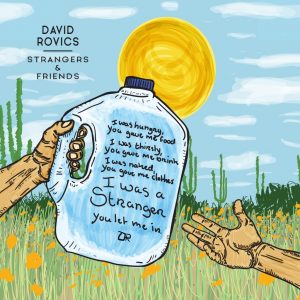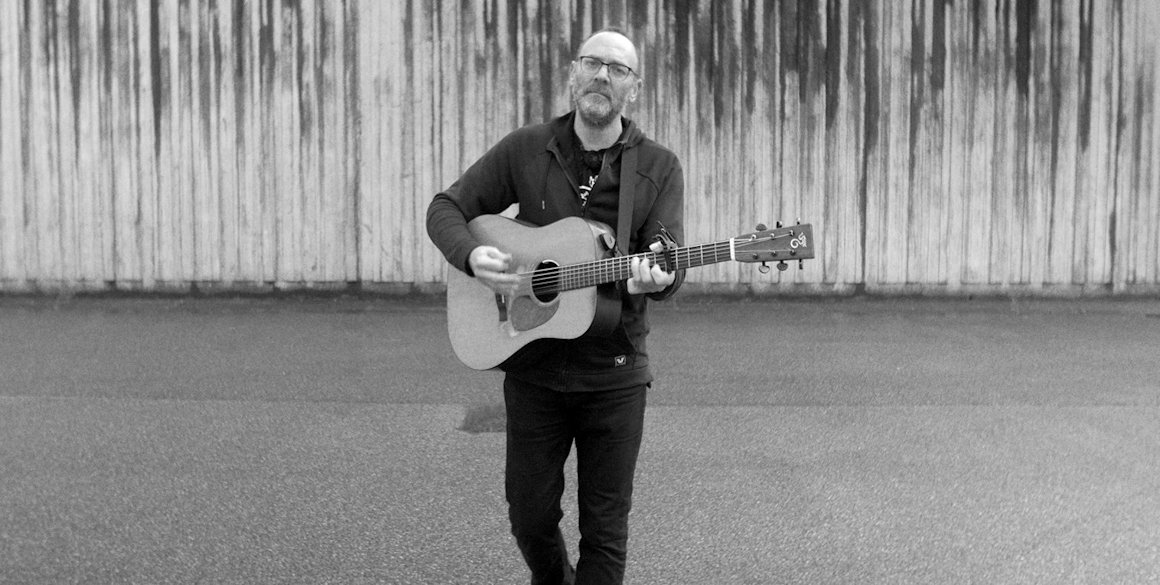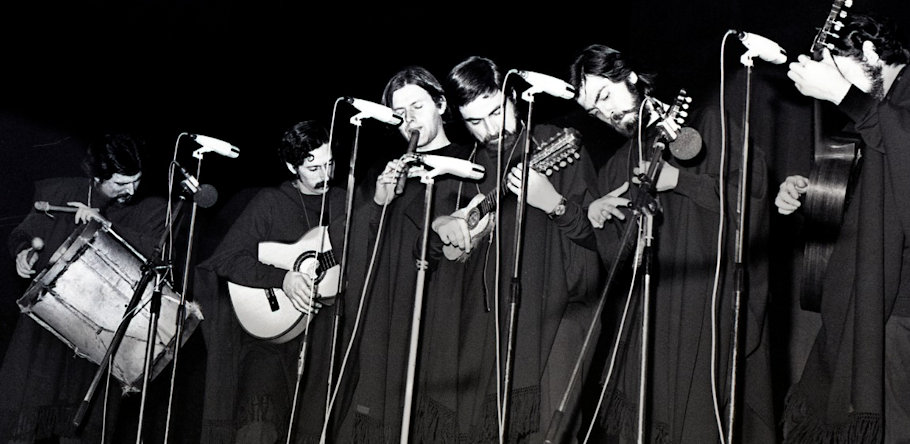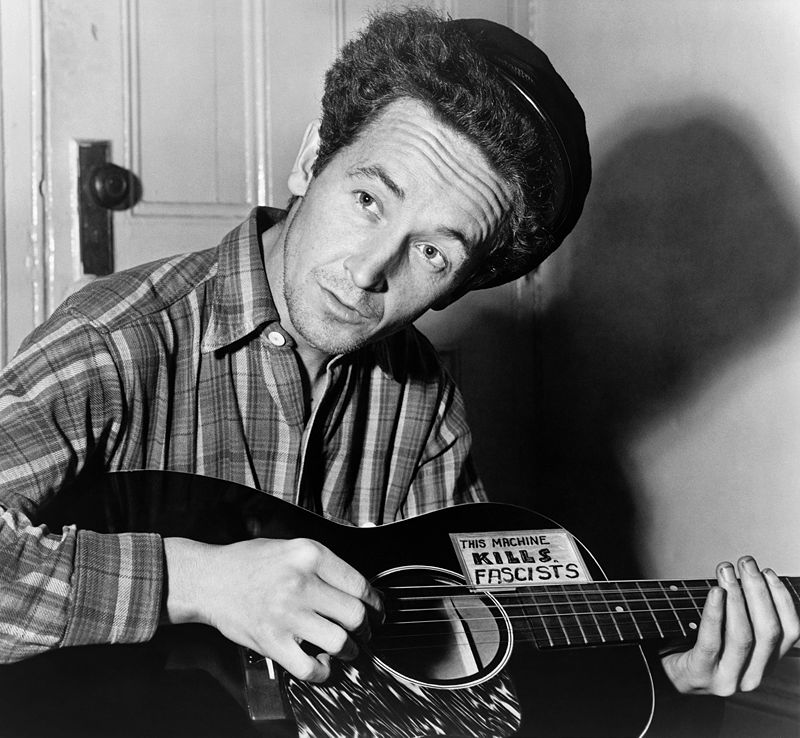David Rovics, the topical songwriter from Portland, Oregon, has just released Strangers and Friends, a new album that may well be his best ever. Rovics has been mentioned a lot in this column over the years. Many of this paper’s readers have seen him live, and even hosted his concerts. For those who don’t know him, suffice it to say that Rovics is a prolific itinerant troubadour who has deservedly evoked comparisons with radical predecessors like Phil Ochs and Joe Hill.

The songs on Strangers and Friends, as on most Rovics albums, chronicle our troubled times. They combine a radical critique of capitalism and militarism with compassion and solidarity with the system’s victims. In “Just a Renter”, for example, working people are driven out of their homes and into their cars, or even into prison, as yuppie investors drive rents sky high. In “When the Nazis Came to Rotherdam” white supremacists terrorize Asian residents in a Yorkshire town, but decent people fight back. In “I Was a Stranger” Arizona residents resist local laws and leave water for thirsty migrants crossing the Sonora Desert.
While he usually performs solo, accompanying himself on acoustic guitar (and is therefore classified as “folk”), Rovics often evokes the rhythmic energy and rage of punk rock. Strangers and Friends, although recorded in Ireland with a group of tradition-minded musicians, is no exception. Even with added pennywhistles and pipes, it’s still easy to imagine many of these acoustic songs as roaring punk anthems. But the real achievement of Strangers and Friends is its emotional breadth and depth. Those qualities have always been present in the work of Rovics, but they have never been more apparent than with this release.
Strangers and Friends stands out, perhaps, because it is the result of a successful collaboration with vocalists Lorna McKinnon and Kamala Emanuel (who together contribute superb choral arrangements) and producer, recording engineer, and multi-instrumentalist Pol Mac Adaim. These artists have worked with Rovics to create a musical setting that enhances the meaning of his songs, making them seem more timeless without undermining their urgent topicality.
For more info visit davidrovics.com.

Peggy Seeger’s ‘Extinction Rebellion’
Renowned folksinger Peggy Seeger has released a new song that could catch on as an anthem for our times. “Extinction Rebellion” is ideal for school, labour and community choirs, as well as singalongs. The song, which Seeger co-wrote with her life partner Irene Pyper-Scott, was inspired by the banners and placards at climate change and Extinction Rebellion demonstrations in the UK. The chorus goes like this: “Extinction Rebellion! Say it loud and clear / We’ve come to change the future, Right Now! Right Here! / We only have one planet there is no Planet B / The oceans are rising …and so are we!”
Peggy, born in 1935, is Pete Seeger’s half-sister and the daughter of American composer Ruth Crawford Seeger. Her first life partner was the influential English communist songwriter Ewan MacColl, who wrote “First Time Ever I Saw Your Face” for her and with whom she had three children. Her best-known pieces are “I’m Gonna Be an Engineer” and “Ballad of Springhill.” Speaking of “Extinction Rebellion,” Peggy says, “This is a rough, very straight rendition and recording. Here’s hoping it travels and morphs into a number of musical styles.”
“Extinction Rebellion” is free to download at www.peggyseeger.com. The sheet music is available from info@peggyseeger.com.
Patti Smith’s birthday poem for Greta
Patti Smith marked Greta Thunberg’s 17th birthday on January 3rd with a short poem celebrating the work of the young climate activist. The influential rock poet posted a photo of Thunberg on her Instagram page and beneath it wrote: “This is Greta Thunberg / turning seventeen today / asking for no accolade / no gifts / save we not be neutral / The Earth knows its kind / just as all deities / just as animals / and the healing spring / Happy birthday to Greta / who stood today / as every Friday / refusing to be neutral.”
The final lines of Smith’s poem refer to Thunberg’s climate strike, which began in August 2018 when she refused to go to school and instead sat outside the Swedish parliamentary building with her famous “Skolstrejk för klimatet [school strike for the climate]” sign. While Thunberg eventually returned to school, her strike evolved into the #FridaysForFuture protest, which finds her returning to the Swedish parliament every Friday, with others, to demand action on the climate crisis. Thunberg spent her 17th birthday outside the Swedish parliament, posting a photo of herself on Twitter, holding her sign: “School strike week 72.”
This is the last of my monthly ‘Music Notes’ columns for People’s Voice. Thanks to the comrades and friends who encouraged me over the past decade with feedback and story tips. Special thanks to my editors Kimball Cariou, Dave McKee, Sara Barker. ~ WB
[hr gap=”10″]
Support socialist media!
If you found this article useful, please consider donating to People’s Voice.
We are 100% reader-supported, with no corporate or government funding.




